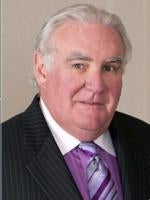In an amicus brief filed with the U.S. Supreme Court, the U.S. Department of Justice reversed itself and argued for the legality of mandatory arbitration agreement provisions waiving employees’ rights to bring class actions under the National Labor Relations Act. The parties have asked the Court to settle a Circuit Court split on whether such agreements are lawful under the Act. In its petition in NLRB v. Murphy Oil USA Inc., No. 16-307, the Obama DOJ had asked the Court to settle that split by holding such provisions are unlawful under the Act. According to the DOJ’s brief reversing that position, since President Donald Trump took office, the DOJ has “reconsidered the issue and has reached the opposite conclusion.” The consolidated cases are Ernst & Young LLP et al. v. Morris et al., No. 16-300; NLRB v. Murphy Oil USA Inc., No. 16-307; and Epic Systems Corp. v. Lewis, No. 16-285.
President Trump has nominated Marvin Kaplan and William Emanuel to fill the two openings on the National Labor Relations Board. Senator Lamar Alexander (R-Tenn.), the chairman of the Senate committee that will consider the nomination, has said he plans to push for a speedy confirmation process. If Kaplan and Emanuel are confirmed, the Board will have a 3-2 Republican majority and is expected to reverse many pro-employee rulings.
The Board ordered a rerun election after upholding a union’s claims that the employer’s voter list contained multiple defects under the Board’s new election rules. RHCG Safety Corp., 365 NLRB No. 88 (June 7, 2017). The Board concluded that a rerun was required because 90 percent of the addresses on a voter list were inaccurate, the names of at least 15 eligible employees were omitted from the voter list, and the employer did not provide phone numbers for any of its employees. Under the Board’s April 2015 “quickie” election rules, employers must provide an expanded voter eligibility list – including not only the names and home addresses required under the old rule, but also “available” home and cell phone numbers (as well as job titles, work locations, and “available” email addresses). While the employer argued its mistakes and omissions were inadvertent and that the list included all home and cell phone numbers available to the HR department, the Board held the employer’s search for the phone numbers also should have included the files of individual supervisors, who in fact have some additional phone numbers.
In a dissent in Cristal USA, Inc., 365 NLRB No. 74 (May 10, 2017), Board Chairman Phillip Miscimarra has stated his belief that the Board should reverse Specialty Healthcare, 357 NLRB 934 (2011). The Board majority in Cristal relied on Specialty Healthcare in affirming a Regional Director’s bargaining unit determination. The majority held the petitioned-for production employees constituted an appropriate unit, despite the fact that the employer’s other production employees and warehouse employees shared the same facility-wide terms and conditions of employment. The larger unit would not be appropriate, the majority held, because the petitioned-for employees did not share an “overwhelming” community of interest with the others, given their separate day-to-day supervision and minimal interchange. Miscimarra, arguing for a reversal of the RD decision, wrote that the micro-unit in Cristal would “promot[e] instability by creating a fractured or fragmented unit.” Going further, Miscimarra stated that “Specialty Healthcare was wrongly decided.”
Republicans in Congress have proposed bills that would reverse Board rules and rulings. The U.S. House of Representatives on June 6 proposed two bills that would repeal portions of the Board’s “quickie” election rules. Proposed by Representative Tim Walberg (R-Mich.), the Workforce Democracy and Fairness Act (H.R. 2776) would require that Board elections occur no earlier than 35 days after a Board order directing an election. Representative Joe Wilson (R-S.C.) proposed the Employee Privacy Protection Act (H.R. 2775), in conjunction with Walberg’s bill, to require the Board to ask employers for no more than one form of personal contact information for election voter lists (under current Board rules, employers must provide names, home addresses and “available” home and cell phone numbers). House Education and Workforce Committee Chairwoman Virginia Foxx (R-N.C.) has not yet stated when the Committee will consider the bills. Meanwhile, Senator Johnny Isakson (R-Ga.) has reintroduced a bill in the Senate that would reinstate the pre-2011 standard for determining which employees belong in a particular bargaining unit. While the bill has not advanced in past sessions of Congress, many anticipate it will proceed further in the current Congress.








 />i
/>i
